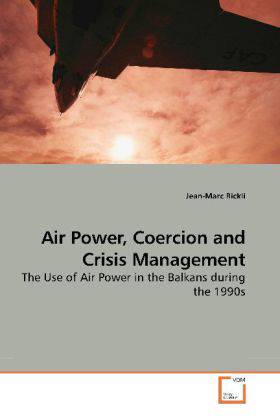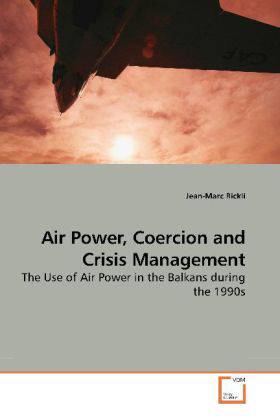
- Afhalen na 1 uur in een winkel met voorraad
- Gratis thuislevering in België vanaf € 30
- Ruim aanbod met 7 miljoen producten
- Afhalen na 1 uur in een winkel met voorraad
- Gratis thuislevering in België vanaf € 30
- Ruim aanbod met 7 miljoen producten
Zoeken
Air Power, Coercion and Crisis Management
The Use of Air Power in the Balkans during the 1990s
Jean-Marc Rickli
Paperback | Engels
€ 48,45
+ 96 punten
Omschrijving
This book is about coercion and air power in crisis management operations. Traditional theories of air power coercion focus on conventional wars. Yet these wars are becoming increasingly rare in the post-Cold War strategic environment. On the other hand, Western armed forces are increasingly used in crisis management operations. This book assesses the relevance of the theories on the coercive use of air power within the strategic environment of peace support operations in the Balkans during the 1990s. Through a detailed analysis of three operations: Deny Flight, Deliberate Force and Allied Force, this book argues that a framework for the coercive use of air power in crisis management has emerged. This analysis should be of interest for those willing to understand the way military force has been used since the end of the Cold War and what is the role of air power in this new context.
Specificaties
Betrokkenen
- Auteur(s):
- Uitgeverij:
Inhoud
- Aantal bladzijden:
- 112
- Taal:
- Engels
Eigenschappen
- Productcode (EAN):
- 9783639190151
- Uitvoering:
- Paperback
- Afmetingen:
- 150 mm x 220 mm
- Gewicht:
- 166 g

Alleen bij Standaard Boekhandel
+ 96 punten op je klantenkaart van Standaard Boekhandel
Beoordelingen
We publiceren alleen reviews die voldoen aan de voorwaarden voor reviews. Bekijk onze voorwaarden voor reviews.








